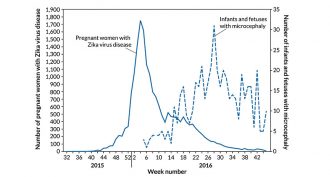Humans
-
 Health & Medicine
Health & MedicineJust viewing super-size meals can promote overeating
Large portions of food dampen activity in a brain area involved in self-control, a new study shows.
-
 Brain
BrainFood smells better to sleepyheads
People who want to resist junk foods or overeating may want to make sure they get a good night’s rest. Being tired makes the scent of foods more appealing, a new study finds.
-
 Psychology
PsychologyNoticing mistakes boosts learning
People who pay attention to their mistakes are more likely to do better the next time, data show.
-
 Brain
BrainAmong mice, scratching is catching — as in contagious
Contagious itching spreads by sight, mouse-to-mouse. Scientists have now identified brain structures behind this phenomenon.
By Susan Milius -
 Health & Medicine
Health & MedicineEarly birds eat better
People who love mornings tend to eat healthier food throughout the day. This could help explain why night owls tend be less healthy overall.
-
 Tech
TechCool Jobs: Doing real science in virtual worlds
Virtual reality isn’t just for gamers. Scientists are using VR technology to tackle real-world problems.
-
 Science & Society
Science & SocietyLegalizing pot may confuse teens into thinking it’s safe
A growing number of teens think marijuana is no big deal, a new study finds. And that may encourage many to experiment with its use.
By Lela Nargi -
 Brain
BrainStudy links ADHD to five brain areas
A new international study shows that the brains of children with ADHD are different from those in people without this condition.
By Dinsa Sachan -
 Health & Medicine
Health & MedicineAnalyze This: Zika and microcephaly
Data from pregnant women with Zika in Colombia helped scientists probe whether Zika causes birth defects.
-
 Science & Society
Science & SocietyFossils point to Neandertal diets — and medicine use
Whether Neandertals were largely meat-eaters or vegans depended on their environment, fossils now suggest. Their teeth also indicate they used natural medicines.
-
 Psychology
PsychologyPeople tend to tune out details of ‘female’ jobs
Stories about people performing ‘women’s’ jobs are less memorable, a teen’s research finds.
-
 Archaeology
ArchaeologySilk Road’s origins may date back millennia
The mountain treks of ancient herders helped mold a cross-continent trade network known as the Silk Road.
By Bruce Bower